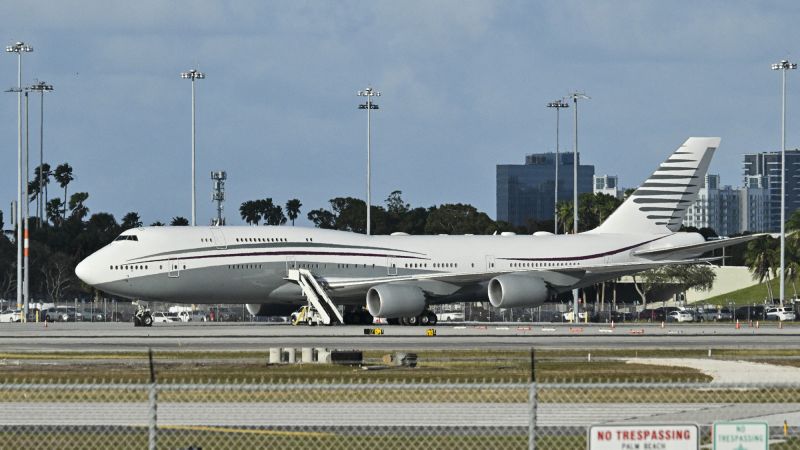The acceptance of a Boeing 747 from Qatar by Secretary of Defense Pete Hegseth has created considerable discussion within the U.S. government and the public. This deal, which is meant to facilitate travel for President Donald Trump when the aircraft is modified for security and mission requirements, has sparked wide-ranging conversations about procedures, legality, and the nature of government transactions. According to a spokesperson from the Defense Department, significant efforts will go into ensuring that this aircraft meets all necessary standards before it is operationally ready.
Chief Pentagon spokesman Sean Parnell clarified the situation by stating that the transfer adheres to federal rules and regulations, thus emphasizing the legality of this transaction. He assured that the Department of Defense would oversee that the aircraft meets robust security measures. In this light, while the move has been accepted at high government levels, a source familiar with the ongoing discussions indicated that negotiations concerning the specifics of the deal are still proceeding and that it has not yet been finalized.
Uncertainties remain surrounding the financial aspects of the deal, as Parnell did not confirm whether the administration has incurred costs for the plane. This ambiguity has prompted inquiries directed to the U.S. Air Force, with CNN also seeking commentary from the Qatari Embassy in Washington, D.C. Trump’s remarks regarding the acquisition of the aircraft were favorable; he characterized it as a significant gesture from Qatar to the United States Air Force, which he perceived as a positive development.
Statements from Qatar’s leadership seem to support this narrative. The Prime Minister highlighted in an interview with Bloomberg that the transaction was transparent, legal, and a result of decades-long cooperation between the U.S. and Qatar’s defense sectors. In Congressional testimonies shortly after, U.S. Air Force officials echoed the sentiment, stating that they are prepared to modify the aircraft under Hegseth’s directives.
Air Force Secretary Troy Meink confirmed the initiation of planning concerning the modifications needed for the aircraft. This involves preparing to accommodate necessary upgrades that would facilitate executive airlift capabilities. An Air Force spokesperson reinforced this information by detailing the preparations for a contract aimed at modifying the aircraft, although the specifics of this contract remain classified, indicating the importance of security and discretion in military matters.
The process of transferring the jet has ignited political debates, particularly among a faction of Democratic lawmakers and some Republican members who traditionally align with Trump’s administration. Their concerns primarily revolve around ethical implications associated with the deal, emphasizing that government transactions should maintain transparency and integrity.
In the context of Trump’s prior remarks on social media, he referred to the plane as a “GIFT, FREE OF CHARGE,” signaling an intention to portray the deal positively. However, conflicting reports suggest that it was the Trump administration itself that first broached the idea of acquiring a 747 from Qatar, seeking expedient solutions to replace aging presidential transport options while waiting for new delivery timelines from Boeing.
According to available details, the Air Force had reached out to Boeing, which informed them that a replacement would not be feasible for two years. Seeking faster alternatives, Trump directed Middle East envoy Steve Witkoff to compile a list of potential aircraft for this purpose. Boeing subsequently suggested several clients who might provide aircraft, with Qatar being among the options.
The Pentagon’s engagement in discussions with Qatar originated from a supportive stance taken by the White House on the transaction, which was primarily facilitated by Witkoff. However, initial assumptions about either a sale or a donation created complexities about how the transfer would unfold, particularly given the stringent requirements of military and defense protocols.
Beyond the overarching ethical questions, practical challenges persist in the refurbishment process needed to equip a used aircraft from another government. This involves an extensive and costly overhaul that could span up to two years, raising additional concerns among U.S. officials about the payment and viability of such a deal. The modifications would require extensive efforts to ensure that the aircraft meets security standards comparable to current presidential transportation.
As this situation evolves, it raises pertinent questions not only about military procurement but also about relationships between the U.S. and foreign nations. Discussions will continue as the various parties navigate the substantive implications of this potential acquisition.



